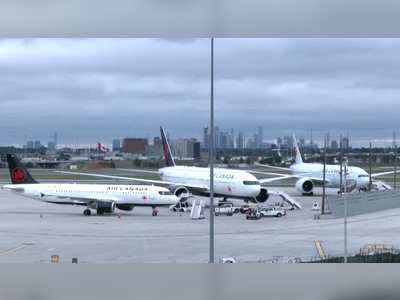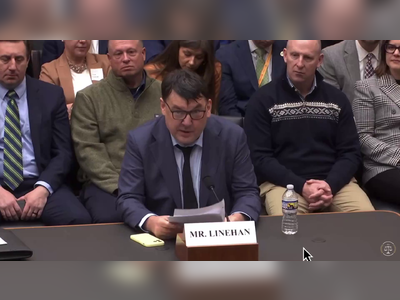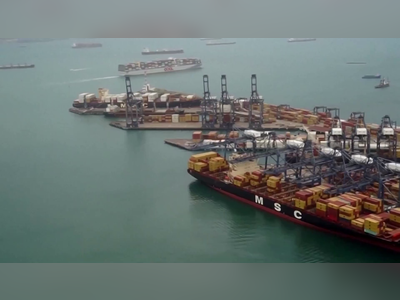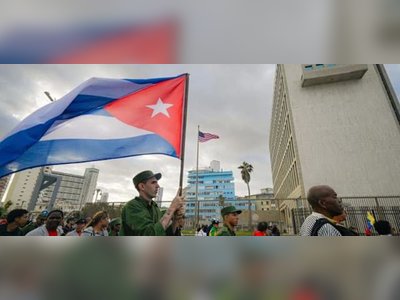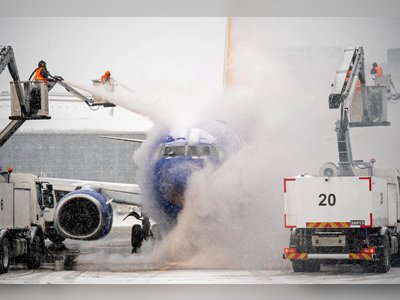Costa Rican Crime Unveiled: Police Collusion with Drug Syndicates Exposed
Law enforcement betrayal shakes communities as systemic corruption threatens social stability in Aserrí and Acosta.
In an alarming exposé that has sent ripples through Costa Rican society, four police officers and a judicial technician have been arrested for their alleged involvement in facilitating a notorious narcotics ring operating out of the towns of Aserrí and Acosta.
This scandal is not merely a footnote in the perennial fight against drug-related crime; it is a jarring commentary on the institutional corruption that has permeated law enforcement agencies tasked with upholding justice.
The individuals in question stand accused not only of aiding and abetting drug sales but also of providing protection from arrest to criminals and enabling money laundering operations through seemingly innocuous businesses such as shoe stores and barbershops.
This betrayal of public trust raises grave concerns about the ability of the Costa Rican justice system to effectively police itself.
Indeed, the entrenched nature of such corruption illustrates a systemic failure in oversight and accountability mechanisms, calling into question the efficacy of current anti-corruption strategies.
While it is easy to paint the entire law enforcement community with the same brush, it is imperative to acknowledge the complexity of the situation.
There remains a significant contingent of officers who put their lives on the line every day, struggling to combat crime amid dwindling resources and mounting skepticism.
These righteous individuals often find their valiant efforts overshadowed by a few malefactors, which only serves to exacerbate the communities' widening trust deficit in institutional frameworks designed to protect them.
The consequences extend beyond mere betrayal; the narcotics network, reportedly intertwined with predatory 'gota a gota' loan schemes and linked to a series of homicides, reveals a deep-rooted malaise afflicting these communities.
Shockingly, schools have been targeted for drug sales, painting a grim picture of societal decay.
This is reminiscent of historical precedents where pervasive corruption within law enforcement heralded the disintegration of communal safety and social order.
Nevertheless, the detentions could herald an opportunity for sweeping reforms within Costa Rica’s justice system.
It is a moment ripe for introspection, a chance to reevaluate policing methodologies and bolster judicial accountability.
Yet, such transformations, particularly in environments resistant to change, are fraught with challenges.
The broader implication here involves the role of community resilience and active civic engagement in countering deep-seated corruption.
Strengthening local governance structures and encouraging citizen involvement might prove pivotal in fostering a culture of accountability.
Perhaps, as voiced by the philosopher Edmund Burke, 'The only thing necessary for the triumph of evil is for good men to do nothing.' This sentiment rings particularly true as Costa Rica stands at a crossroads, with the potential for meaningful change beckoning amidst the prevailing turmoil.
This unfolding narrative not only calls for action but also for a hopeful dialogue towards rebuilding trust and re-establishing the rule of law in affected areas.
This scandal is not merely a footnote in the perennial fight against drug-related crime; it is a jarring commentary on the institutional corruption that has permeated law enforcement agencies tasked with upholding justice.
The individuals in question stand accused not only of aiding and abetting drug sales but also of providing protection from arrest to criminals and enabling money laundering operations through seemingly innocuous businesses such as shoe stores and barbershops.
This betrayal of public trust raises grave concerns about the ability of the Costa Rican justice system to effectively police itself.
Indeed, the entrenched nature of such corruption illustrates a systemic failure in oversight and accountability mechanisms, calling into question the efficacy of current anti-corruption strategies.
While it is easy to paint the entire law enforcement community with the same brush, it is imperative to acknowledge the complexity of the situation.
There remains a significant contingent of officers who put their lives on the line every day, struggling to combat crime amid dwindling resources and mounting skepticism.
These righteous individuals often find their valiant efforts overshadowed by a few malefactors, which only serves to exacerbate the communities' widening trust deficit in institutional frameworks designed to protect them.
The consequences extend beyond mere betrayal; the narcotics network, reportedly intertwined with predatory 'gota a gota' loan schemes and linked to a series of homicides, reveals a deep-rooted malaise afflicting these communities.
Shockingly, schools have been targeted for drug sales, painting a grim picture of societal decay.
This is reminiscent of historical precedents where pervasive corruption within law enforcement heralded the disintegration of communal safety and social order.
Nevertheless, the detentions could herald an opportunity for sweeping reforms within Costa Rica’s justice system.
It is a moment ripe for introspection, a chance to reevaluate policing methodologies and bolster judicial accountability.
Yet, such transformations, particularly in environments resistant to change, are fraught with challenges.
The broader implication here involves the role of community resilience and active civic engagement in countering deep-seated corruption.
Strengthening local governance structures and encouraging citizen involvement might prove pivotal in fostering a culture of accountability.
Perhaps, as voiced by the philosopher Edmund Burke, 'The only thing necessary for the triumph of evil is for good men to do nothing.' This sentiment rings particularly true as Costa Rica stands at a crossroads, with the potential for meaningful change beckoning amidst the prevailing turmoil.
This unfolding narrative not only calls for action but also for a hopeful dialogue towards rebuilding trust and re-establishing the rule of law in affected areas.
